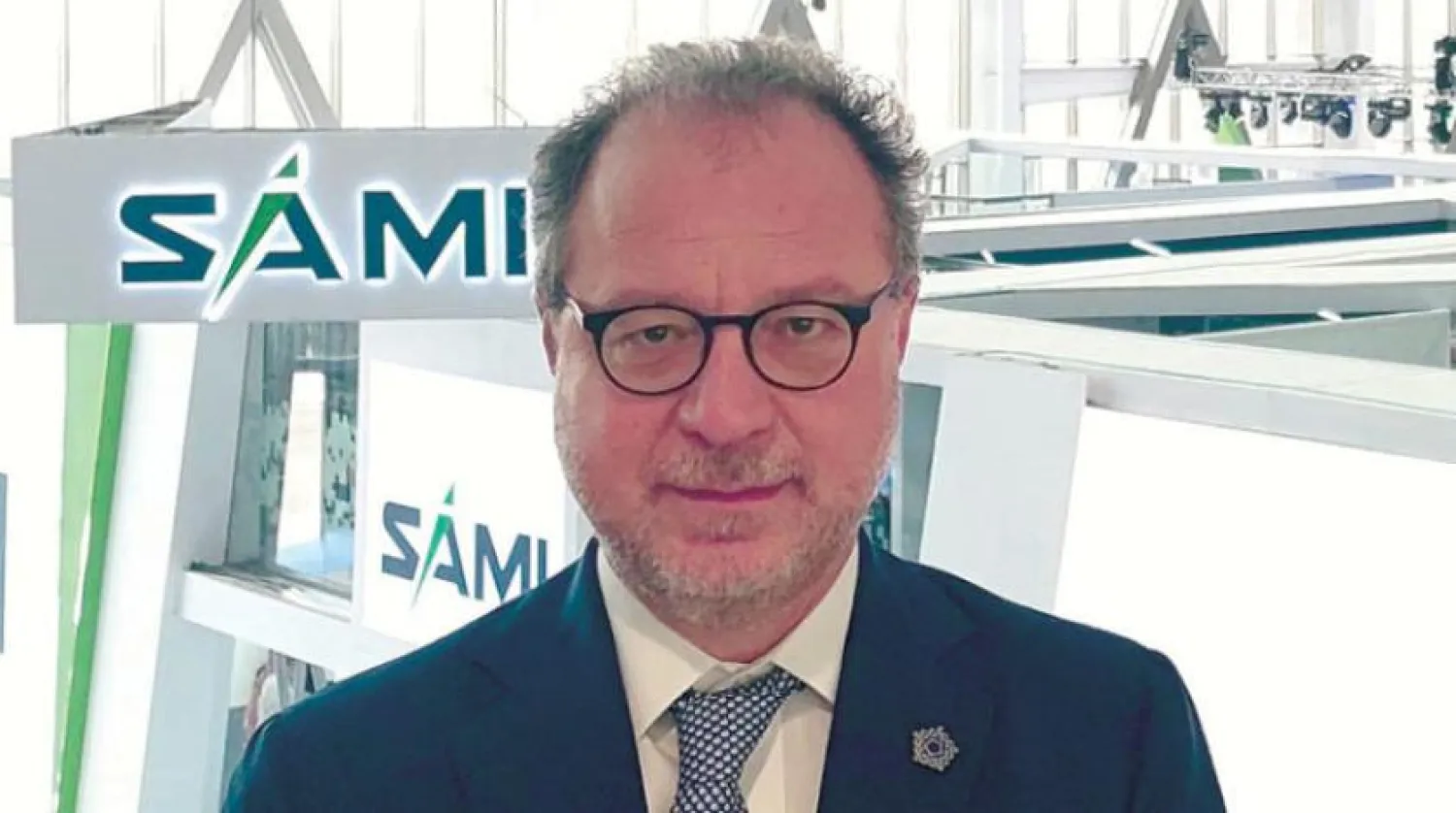A high-ranking Italian official said Moscow's invasion of Ukraine left the Europeans with no choice but to tighten sanctions against it in solidarity with the Ukrainian people.
Italy's Undersecretary of State for Defense, Giorgio Mulè warned that Europe was headed towards a period of instability, but this does not mean that a political solution to the crisis has been abandoned. The solution, he said, could be reached through a third neutral party, such as the United Nations.
Mulè told Asharq Al-Awsat he believes that the European Union must set up a fund, similar to the successful NextGenerationEU fund that was established to help recover from the coronavirus pandemic.
The Ukraine fund would help in addressing the current energy and gas crisis that is affecting European citizens, families and companies, he added.
Mulè also stressed the importance of regional dialogue to address pending disputes related to Iran, starting from the Sunni and Shiite sects and conflicts in Iraq, Syria and Yemen. He underlined the importance of the channel of communication between Riyadh and Tehran, saying Saudi Crown Prince Mohammed bin Salman was right in setting it up, as he recently declared in his interview to The Atlantic.
On Yemen, Mulè said the attacks by the Iran-backed Houthi militias against Saudi Arabia are a clear challenge to the security of the Kingdom.
Italy condemns these attacks at all international occasions, in coordination with its European and international partners, he added.
Moreover, he remarked that these ongoing attacks and the military operations in Yemen, especially around the Marib province, do not justify the Houthis' refusal to reach a political solution to the crisis.
On Saudi-Italian relations, Mulè described them as "excellent" on the political and economic levels. He said Italy was looking forward to the next meeting of the joint committee and related forum that will bring together the business society.
The meeting will likely be held in June. Several Italian companies are preparing to set up joint projects and unions given the several opportunities for tender that are being prepared in Saudi Arabia.
Mulè underscored the future of cooperation between Riyadh and Rome in the field of military and defense industries. He stressed that the World Defense Show underway in Riyadh is the ideal backdrop for paving the way for future partnerships between Saudi and Italian defense companies.
He predicted that the defense show will become a renowned global event on par with Britain's Farnborough show and the Paris Air Show.
Returning to Ukraine, Mulè said Italy had strongly condemned the invasion, which violates international law. Russia is violating the sovereignty and regional safety of Ukraine and is in turn destabilizing Europe.
He added: "Within the EU framework and in cooperation with our international partners, we were forced to impose a number of severe sanctions. This is also a sign of support to the Ukrainian people."
"Let me here pause to say how greatly pleaded I am to see Italy and Saudi Arabia stand on the same side at the UN when the General Assembly voted to condemn the Russian aggression," he went on to say, describing the move as the right choice.
American-European sanctions
Mulè said the strict sanctions against Russia were necessary "because we could not have a state attack without counter-measures being imposed by the international community."
He stressed the need for the sanctions to be coupled with a diplomatic process that would be promoted by a third neutral party, such as the UN. Rome supports all efforts to that end.
Mulè urged the need for both parties to return to the negotiations table on the highest levels in order to agree to an immediate ceasefire and the opening of effective humanitarian corridors, as well as long-term solutions to the crisis.
Iranian situation
He acknowledged that Rome enjoys a strong historic partnership with Iran that dates back to the time of the Shah. Mulè added that "we have always stressed to the Iranian leadership the importance of regional dialogue to address pending disputes, starting between the Sunni and Shiite sects and the conflicts in Iraq, Syria and of course, Yemen."
He underlined the importance of the communication channel between Saudi Arabia and Iran and the series of meetings between senior officials that were held in recent months in Baghdad.
On the nuclear deal, he remarked that Italy has always been a strong backer of the agreement. It is looking forward to a positive result from the negotiations in Vienna.
The 2015 deal, known as the Joint Comprehensive Plan of Action (JCPoA), is an effective tool against the proliferation of nuclear weapons, he continued. Its effective implementation, along with bolstering the dialogue between Riyadh and Tehran, will increase regional stability and security.
Riyadh Defense Show
Mulè said he was pleased to be present at the launch of the inaugural World Defense Show in Riyadh on Sunday. He conveyed the greetings of Italian Prime Minister Mario Draghi and Defense Minister Lorenzo Guerini, whom Mulè was representing at the exhibition.
The official said the exhibition reveals the latest products of Italian companies. Several defense systems are on display. These systems are often produced and designed in cooperation with European industrial partners.
Italian companies are very keen on the planned investments, in line with Vision 2030, added Mulè.
"We can follow the path set by Saudi Arabia's Vision 2030 in regards to diversifying the economy," Mulè stated. He added that Italy can be active in Saudi Arabia, not just in classical fields, such as oil and gas, but in increasing cooperation in additional sectors, such as culture, space and civil protection.
He said Italy was keen, through the joint committee, on several agreements in line with Vision 2030.
It is also keen on transferring the greatest possible expertise in order to contribute to the goal set by the General Authority for Military Industries (GAMI) to invest 50 percent of the Saudi defense budget in Saudi Arabia.










